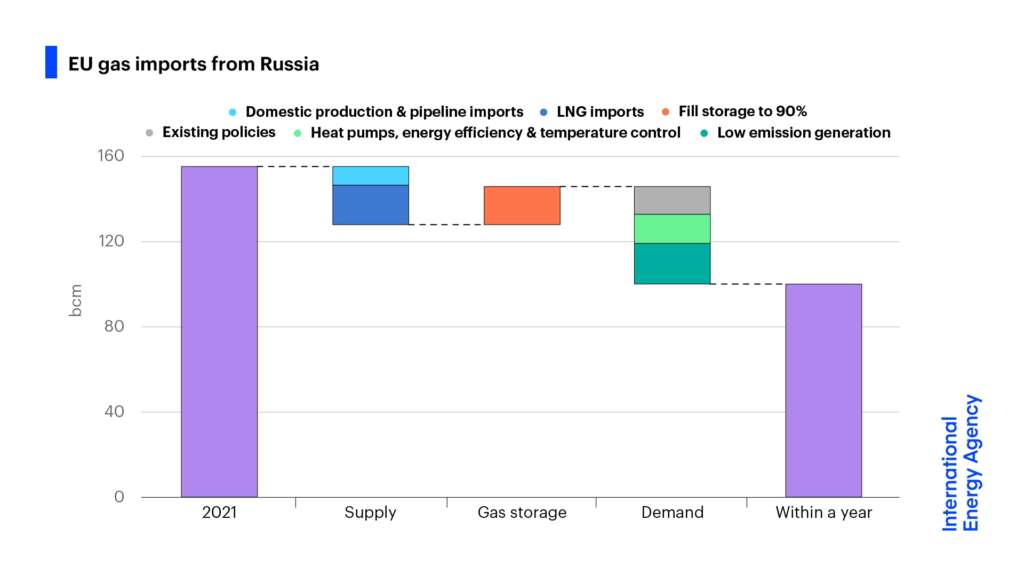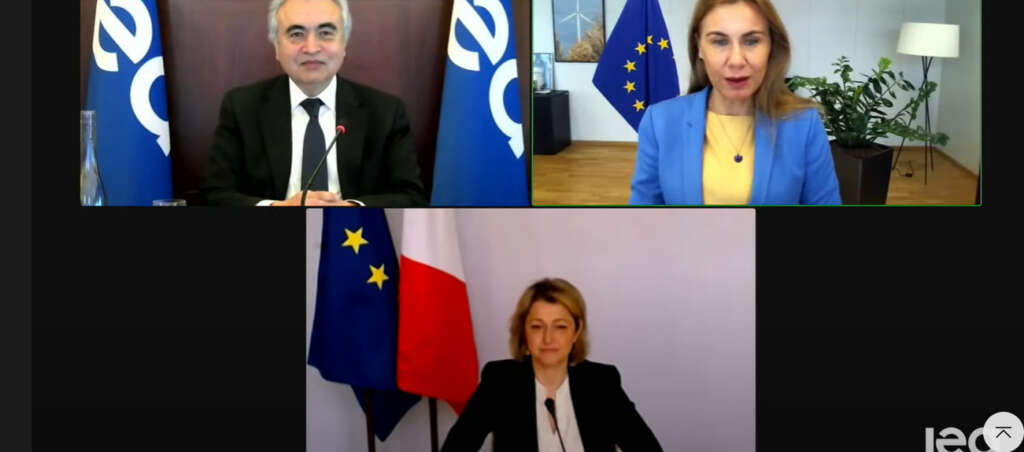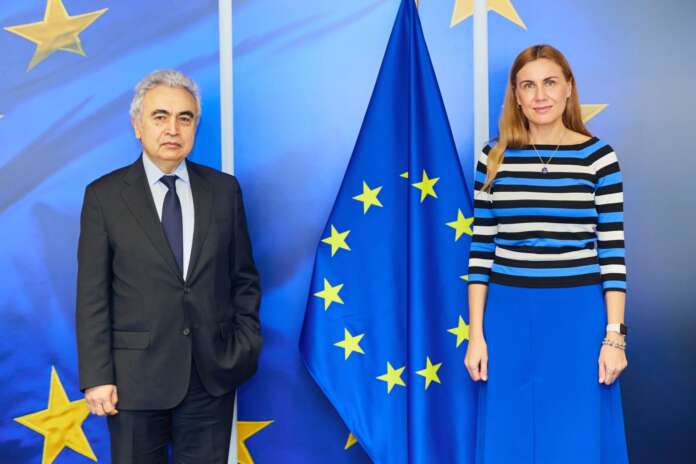The International Energy Agency (IEA) has proposed a 10-point plan to enable the European Union’s reduce its reliance on Russian natural gas. The agency suggests that if targeted measures are implemented this year, gas imports from Russia could be brought down by over one-third.
“For decades the European gas supplies have been dominated by Russia and what we are experiencing today is Russia using natural gas resources as an economic and political weapon. This is clear to everyone in the world”, said Fatih Birol, Executive Director of IEA.
In 2021, the European Union imported an average of over 380 million cubic metres (mcm) of gas daily by pipeline from Russia, around 140 billion cubic metres (bcm) throughout the year and around 15 bcm liquefied natural gas (LNG) in addition. In total, the import accounted for around 45 per cent of gas for the EU’s in 2021 and almost 40 per cent of its total gas consumption.

The IEA’s report which is based on the consultations of energy experts and members of the IEA secretariat proposes practical actions for significantly reducing the dependency of Europe on Russian gas supplies. According to Mr Birol, these steps are consistent with the European Green Deal too.
The number one measure of the plan suggests not making any new gas supply contracts with Russia. Currently, gas import contracts with Gazprom covering more than 15 bcm per year are set to expire by the end of 2022. Other contracts covering close to 40 bcm per year are due to expire by the end of this decade.

Minister of the Ecological Transition of France, Barbara Pompili pointed out that since the escalation of the war, the foremost concern for the EU has been providing the necessary energy assistance to Ukraine.
“The Ukrainian grid is no longer connected to the Russian grid. We have asked European transmission system operators and ENTSO-E to speed up the technical work for the connection of the Ukrainian grid to the European network and we hope it can be done within 15 days”, she noted.
“Our second concern has been the resilience and the dependence of our European energy system. […] We must strengthen our resilience and drastically reduce Europe’s dependence on Russian oil and gas. The 10 point plan proposed by the IEA will contribute to this thinking. We will look at these proposals to make coordinated decisions rapidly”, she added.
Ms Pompili also urged that in parallel to the diversification of gas supply, the enhancement of energy transition together with the improvement of energy efficiency and acceleration of deployment of renewable energy are the key measures that Europe must take.
“Each additional wind turbine or solar panel in Europe is the fight for the climate and for our energy independence. We are more determined than ever to make rapid progress in the European negotiations of the fit for 55 legislative packages”, said Ms Pompili.
Among shorter term, effective measures, she suggested the reduction of energy consumption.
“In these difficult times, it is vain to believe that the war on the continent will have no impact on us. Collective responsibility in the way we use and consume our energy is by far the best way to reduce our dependency on Russia”, she pointed out, adding, “We are also working to reduce gas consumption through incentives for the deployment of renewable heat”.
European Commission for Energy, Kadri Simson also underscored that the EU and its member states are fully committed to helping Ukraine including in their security of energy supply.
“I have been in constant contact with the Minister of Energy [of Ukraine] Mr Halushchenko and in our call, security of supply is atop of our list […]. Ukraine also has asked for specific help in the energy sector. It needs diesel, petrol, coal, generators and we are coordinating closely with the Member States to provide support. This conflict must be a moment of awareness, the moment of awakening about our energy security. The war in Ukraine has made our dependence on Russian gas and its risks painfully clear”, she said.
Ms Simson warned that if current trends should continue, the level of storage in Europe in April will be much lower than in previous years.
“We need to start immediately to secure sufficient gas storage for next winter, bringing it close to 90 per cent. Beyond the short term, ultimately, the best and only lasting solution is Green Deal, boosting renewables and energy efficiency as fast as technically possible. We are still far too dependent on fossil fuel imports but boosting home-grown renewables will help us out of this trap”.




